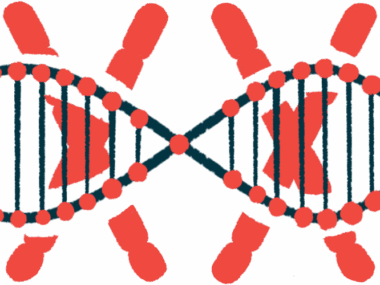New company Aptadir to develop gene reactivating therapy for fragile X
RNA therapies show potential to turn on genes that are abnormally silenced
Written by |

With $1.6 million in pre-seed funding, researchers have launched a new biotech company called Aptadir Therapeutics that will develop RNA-based therapies to reactivate specific genes that are silenced in cancer and genetic diseases such as fragile X syndrome.
The therapies will be based on a new class of RNA molecules, called DNA methyltransferase-interacting inhibitors or DiRs, that can switch back on specific genes.
“Today represents the launch of Aptadir Therapeutics and is an exciting day for the founders and team,” Giovanni Amabile, PhD, who’s been appointed Aptadir’s executive chairman and acting CEO, said in a company press release. “Aptadir’s business is based on real innovation — a landmark discovery of a new class of molecules which have the potential to be best-in-class therapeutics for intractable conditions.”
The company’s pre-seed funding came from EXTEND, an initiative of Italy’s CDP Venture Capital, Angelini Ventures, and Evotec that provides the initial capital needed for start-ups to move discoveries from the lab to the clinic.
Aptadir first biotech company born from EXTEND
“Aptadir is the first biotech company born from EXTEND,” which “aims to develop high quality science coming from top Italian universities and to help build new start-ups that can develop that science for the benefit of future patients,” said Claudia Pingue, senior partner and head of the technology transfer fund of CDP Venture Capital. “Aptadir represents one of the best examples of where science innovation can create a new potential therapeutic for underserved conditions in adults and children, such as MDS [myelodysplastic syndrome] and Fragile X Syndrome.”
Company founders include two leaders in the field of RNA biology, an expert in MDS and other types of blood cancer, and an expert in immunotherapies based on RNA or DNA molecules that also regulate gene activity.
Some diseases are due to epigenetic marks that change the way a gene is switched on and off without changing its DNA sequence. A common epigenetic marking is DNA methylation, which adds chemical tags called methyl groups to DNA, silencing the gene such that no protein is produced from it. The DNA methyltransferase family of enzymes are responsible for adding these methyl groups to genes.
Fragile X is caused by a mutation in the FMR1 gene, where a section of the DNA abnormally repeats a sequence of three building blocks (CGG) more than 200 times. This makes FMR1 a target of excessive DNA methylation, which switches off the gene’s activity.
The FMR1 gene provides instructions for producing a protein needed for nerve cells to communicate with each other. DNA methylation causes little or no protein to be produced. As a result, patients develop a range of symptoms, including moderate to severe intellectual disability.
By blocking DNA methylation, DiRs can turn a gene back on
DiRs are RNA molecules that interact with and trap DNA methyltransferases. By blocking DNA methylation, DiRs can turn a gene back on, restoring its activity. Aptadir’s platform can develop DiRs tailored to target specific genes, showing potential to reactivate genes that are abnormally silenced in certain diseases, with the goal of slowing disease progression.
“From data already generated, DiRs are highly selective, stable and non-toxic, and have the potential to be used across multiple indications,” Amabile said. “This is a really exciting new field and we are looking forward to pushing our first candidate forward into the clinic.”
The initial funding will be focused on the optimization of its lead candidate, Aptadir Ce-49, for MDS, a blood cancer associated with aberrant DNA methylation. If preclinical development goes well, the plan is to advance the treatment into clinical testing by the end of 2025.
“We’ll be watching [Aptadir’s] progress with great interest,” Pingue said.







